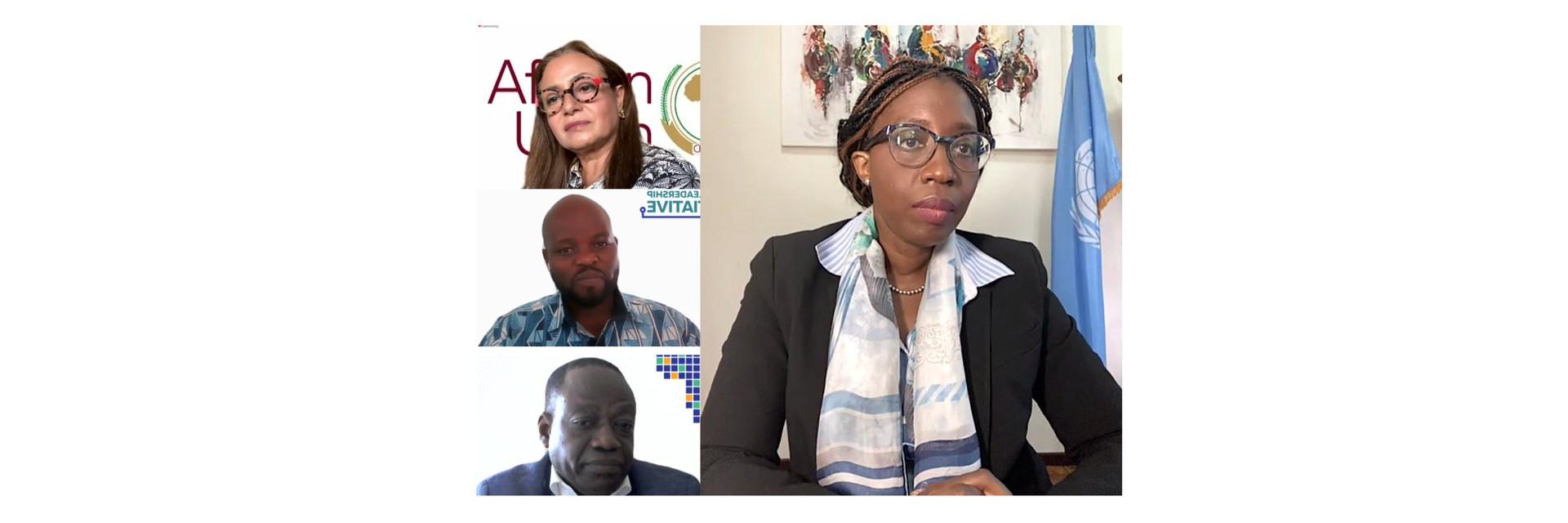Addis Ababa, Ethiopia, October 6, 2020 (ECA) – The Economic Commission for Africa raised the flag on data governance Tuesday by jointly launching the Africa Data Leadership Initiative (ADLI) with Future State and Smart Africa, creating safe space for policymakers, digital rights experts and entrepreneurs to learn together.
The ADLI is a peer network designed for and by African policymakers, consumer rights advocates, and private sector stakeholders to ensure the data economy drives equitable growth and social progress across the continent.
The tripartite partnership is creating a peer learning and exchange network in pursuit of three interrelated and interdependent goals:
- Creating a dynamic “safe space” in which African policymakers, digital rights experts, and entrepreneurs can learn together and from each other, collaboratively problem solve, and share experiences;
- Building a strong base of expertise across the continent to safely unlock the value of data for prosperity and social advancement; and
- Contributing to broader initiatives like the African Union-led framework for an African Data Governance Agenda to build a comprehensive data policy for the continent.
Leveraging Smart Africa’s and ECA’s existing platforms, the organisations will promote the peer network among their constituents and solicit input to the data governance issues interrogated through the peer network.
In her remarks during the launch, ECA Executive Secretary, Vera Songwe, said the ADLI was yet another stone in the edifice of trying to push data and ICT transformation on the continent.
“If we do not find ways of closing the inequality gaps on our continent, we will end up with an even more unequal society which is unstable and may lead to political and civil unrest undermining the recovery” she said in reference to the ongoing novel coronavirus pandemic.
Ms. Songwe said ICT and digital transformation is everybody’s business and value creation that exists in the ICT sector was crucial for wealth creation and a more prosperous Africa.
“To catch up to the rest of the world and leave no one behind, we must invest quickly, faster and at scale in infrastructure, in particular in digital technology,” she said, adding ICT and digital transformation was everybody's business.
“The ICT ministers may be the custodian, but we need all stakeholders - health, education, the private sector and civil society to generate value,” added the ECA Chief.
Ms. Amani Abou-Zeid is the Commissioner for Infrastructure and Energy at the African Union Commission (AUC). She said since 2015 the AUC and ECA had co-hosted high-level meetings on data which showed how accurate and timely data can help address the continent’s socio-economic challenges.
“Our eyes are very much on how we recover better and smarter in the aftermath of COVID-19 and technology will definitely help us do that,” she said, adding safety and security were crucial going forward to ensure Africa’s data is not abused.
For his part, Jean-Philbert Nsengimana of Future State, said; “At Future State we believe that a balanced data governance framework should satisfy a number issues, including participation. This is about leaving no-one behind from the opportunities and prosperity that the data economy promises.”
The data economy, he said, is a competitive landscape that thrives through offering people maximum choice, adding trust that is built through openness, transparency, accountability, safety and security was also crucial in this field.
For his part, Lacina Koné, Director General and CEO of Smart Africa, said in emerging African economies, data protection was crucial and should start with the building of secure infrastructure.
He said access to trustworthy and accurate data was vital for Africa's development.
“In order to increase the use and value derived from data, capacities to make smart use of available data must be enhanced on the African continent both in the public and private sectors. Infrastructure for this data circulation must be development,” said Mr. Koné.
SMART Africa is a bold and innovative commitment from African Heads of State and Government to accelerate sustainable socioeconomic development on the continent, ushering Africa into a knowledge economy through affordable access to Broadband and usage of Information and Communications Technologies.
Future State is a neutral, non-profit initiative of the United Nations Foundation that undertakes high-impact research and facilitates the transformations necessary for all people to benefit from the data economy. It advocates for the rights and aspirations of people in the digital era.
Issued by:
Communications Section
Economic Commission for Africa
PO Box 3001
Addis Ababa
Ethiopia
Tel: +251 11 551 5826
E-mail: eca-info@un.org

